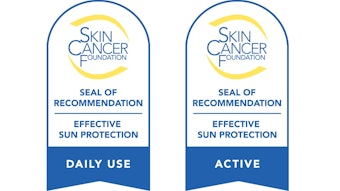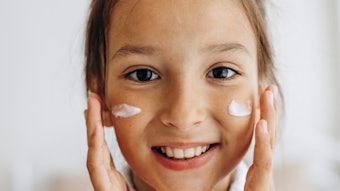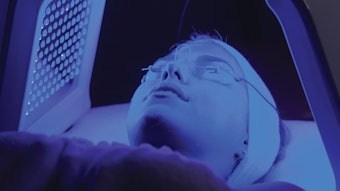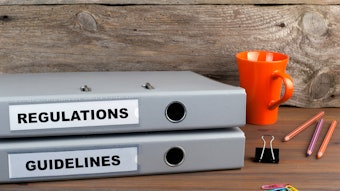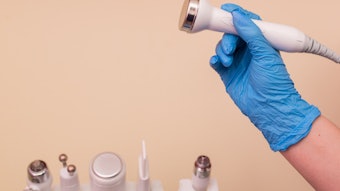
Do you love watching Sherlock Holmes and his sleuthing ability? As facialists, we often need to be detectives too. By this, I mean that anything and everything we can learn about a client’s skin provides us with clues that will lead us to the best treatments for the individual. This is where the Client History Card or Intake Form plays an essential role, not only on the first spa visit but on every consecutive visit. We want long-term converts.
The design and format of your intake form comes down to personal choice. There are plenty of templates online to choose from. For example, after gathering all the necessary information on the first two pages we attach blank sheets to write notes on as well as keep digital records. Obviously, some of the data contained on these forms is for marketing purposes. However, in this article, I want to focus on safety and efficacy. The advanced protocols used in facial treatments today warrant detailed information being shared to protect both the client’s well-being and ours.
Skin Concerns and Expectations
Before collecting any data, ask your client what they would like to change about their skin and find out what results they wants to achieve. Later, you can explain the protocols and products that you would recommend. Always remember to create a relaxing and pleasant experience during the client's visit. Direct questions and observation are an important part of this process. Included below is the list of the key categories that you should definitely ask about.
Allergies
I have put this category at the top of the list because of the huge increase in allergies that we are experiencing as a nation. Our food chain is filled with chemicals our bodies don’t know how to process, and the air we breathe has become polluted with traffic fumes, smog and construction particulates that corrupt our environment especially if we are city dwellers.
This is particularly challenging for the skin which acts as a barrier against all these elements. A reaction can range in appearance from redness, a rash, to full blown hives. Also, check with your client if they can tolerate fragrance. Even essential oils can be too much for some people. We need to know about these issues to ensure a comfortable experience.
Pre-existing Medical Conditions
These different conditions can include acne, diabetes, epilepsy, asthma, HIV positive, eczema, blood pressure, hormonal issues, sinus and thyroid problems. All these conditions affect the skin’s appearance and its response to specific facial protocols. For example, diabetic clients can bruise easily. Certain acne topicals make the skin sensitive and exfoliate profusely and NO electrical procedures should be performed on epileptic clients as it could trigger a seizure. Asthmatic clients often find the steam can make them cough, and I recommend raising the headrest for comfort and positioning the steam a little further away. With HIV patients, I recommend wearing gloves for the full treatment.
Medications
With the aging baby boomer population, there is a plethora of medications being prescribed for all kinds of ailments–both serious and chronic. Everything from cancer to insomnia, anxiety and depression; these affect not only the skin but also the client’s sense of well-being. Coming for a treatment is often the highlight of a person’s day, so it is essential for us to educate ourselves so that we can provide a relaxing, safe and memorable visit. Many medications affect results because they tend to make the skin more sensitive, cause dryness and at the other end of the spectrum, adult acne.
Prescription Skin Care Products
Retin-A, Differin, Tazarac are all part of the Retinoid family that cause skin proliferation. It is essential for this reason that any client using these topicals not be waxed. Accutane, an oral acne medication, carries the same contraindication. This is because the waxing process will remove the skin in the areas being waxed as well as the hair.
Aside from Accutane, other acne protocols prescribed by a dermatologist can be very aggressive, so be extremely gentle and design a treatment that calms and hydrates. It will help to restore the skin’s natural barrier and speed healing. It is also important to ask your client if they have had microdermabrasion, chemical peels or plastic surgery. These procedures raise the skin’s sensitivity to other protocols and the sun and can cause hyperpigmentation. We need to tailor our treatments accordingly.
Aesthetic Enhancements
Botox, injectables and microneedling have become mainstream events, so find out what your client is doing or has had done. We always wait two weeks post injectables and Botox before performing a facial. Certain electrotherapies like microcurrent are going to be less effective on clients who do these treatments regularly, so recommending products to enhance the benefits of these protocols is a good way of serving the client's best interests.
Ask about implants too. Some are done as a cosmetic choice (i.e. chin and cheek), but others are done for medical purposes (i.e. pacemakers and titanium implants), which are more common among older clientele. These kinds of implants rule out some electrotherapy.
Hormones
Hormonal breakout zones on the face are often the chin and lower jaw and generally occur during period time, pregnancy, IVF and menopause. Irregular cycles can also cause acne. When using or changing birth control pills, it can take the body three to six months to adapt, and breakouts can also appear at this time. Stress has created an increase in both male and female acne, and we often find ourselves dealing with endometriosis and polycystic ovary syndrome (PCOS) in women both of which trigger stubborn breakouts. Medications like spironolactone can be very helpful in these cases so make sure to stay up-to-date with what’s on offer.
Home-care Routine
What your client is using at home and how consistently has a huge impact on results. On a client’s first visit to the spa we have them bring everything they are currently using. It is essential that you have a working knowledge of current ingredients not only in the products that you use and retail but what is trending. This sets you apart from your competition and will establish you as an expert in your client’s mind. Cosmetic chemistry has made huge advances in the last 20 years, so educated recommendations can really make a difference to how your clients age and to your bottom line.
Lifestyle Habits
Daily lifestyle habits are definitely something to quiz your clients about. Diet, fluid intake, smoking, sleep, exercise all effect the skin’s appearance and ability to function. These topics also need to be addressed continually on recurring visits.
Stress
Finally, discuss the client’s current stress level. This can influence so many factors, and the world right now can be a very stressful place. Our role, after all, is to provide a safe haven to analyze and resolve skin issues on the face and body while offering stress relief and healthy life pointers.


